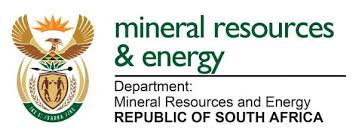Introduction
Petroleum licensing. Selling petrol and diesel in South Africa is a regulated activity that requires a licence. The Department of Energy, through its Petroleum and Petroleum Products branch, oversees the regulation of petroleum products to ensure the orderly functioning of the petroleum industry. This article will provide a comprehensive overview of the licensing requirements, types of licenses, and the application process for selling petrol and diesel in South Africa.
Meta Description
You can learn about the licensing requirements for selling petrol and diesel in South Africa, including the types of licences, application process, and necessary documentation.
Licence to sell petrol and diesel in South Africa
Petroleum licensing
Petrol and diesel retail licence
Wholesale petroleum licence
Petroleum regulation South Africa
Licensing Requirements
Mandate of the Office of the Petroleum Controller
The Office of the Petroleum Controller is responsible for implementing the Petroleum Products Amendment Act (PPAA) of 2003. This includes managing the adjudication of manufacturing, wholesale, and retail licences for petroleum products. The office also monitors compliance with the Petroleum and Liquid Fuel Charter and facilitates the development of small businesses in the petroleum sector.
Types of Petroleum Licensing Applications
There are several types of petroleum licensing applications, including:
Wholesale
Site & Retail
Change of Hands
Temporary
Amendments
Site Transfers
Extensions
Withdrawals
Wholesale Licence
To apply for a wholesale licence, the following documents are required:
Business registration documents
Compliance with charter declaration
Declaration indicating no storage facilities
List of storage and distribution facilities
Table of employees
Tax compliance status (SARS)
Procurement spending plan
B-BBEE status
Proof of address
Publications in two national newspapers
Retail Licence
For a retail licence, the required documents include:
Motivation
Business registration documents or identity documents for individuals
Net Present Value (NPV) with assumptions
Franchise agreement
Proof of funds or loan agreement
HDSA declaration
Declaration of non-ownership by a wholesaler
Proof of address
Tax compliance status (SARS)
B-BBEE certificate
Table of employees
Publications in two local newspapers
Previous volumes pumped (two years)
Sale agreement or memorandum of business agreement
Executor letter or letter of authority in case of death
Auction documents if acquired through auction
Court order for litigation matters
Site Licence
A site licence application must include:
Motivation
Business registration documents
Title deed or deed of transfer
Land use zoning certificate
Record of decision from an environmental authority
Permission from SANRAL for access to national roads
Publications in two local newspapers
Proof of address
Application Process
The process of lodging an application involves several steps:
Lodging the Application: Applications can be submitted in person or by post (registered mail).
Initial Review: The application is reviewed to ensure all requirements are met. If not, the application is not accepted.
Evaluation Stage: Accepted applications move to the evaluation stage.
Decision Making: The decision is made whether to issue or refuse the licence.
Appeal Process: Applicants can lodge an appeal within 21 working days from the publication date if the licence is refused.
Issuing the Licence: If conditions are met, the licence is issued.
Conditions Before Issuing Licences
Before issuing a licence, certain conditions must be met, including compliance with the Liquid Fuel Charter and other regulatory requirements. The applicant must also provide all necessary documentation and meet the stipulated criteria.
Challenges
The licensing process can be challenging due to the stringent requirements and the need for compliance with various regulations. Applicants must ensure they have all the necessary documentation and meet all the conditions to avoid delays or refusals.
Regional Contact Details
For assistance with the licensing process, applicants can contact the regional offices of the Department of Energy. Each region has designated officials who can provide guidance and support.
Northern Cape
Phone: 053 – 836 4000
KwaZulu-Natal
Phone: 031 – 334 7705
North West
Phone: 018 – 397 8608
Gauteng
Phone: 012 – 406 7788
Mpumalanga
Phone: 013 – 658 1400
Western Cape
Phone: 021 – 446 3303
Eastern Cape
Phone: 043 – 703 6007
Free State
Phone: 057 – 391 1397
Limpopo
Phone: 015 – 230 3600
Conclusion
Obtaining a licence to sell petrol and diesel in South Africa is a detailed process that requires compliance with various regulations and submission of specific documentation. By understanding the requirements and following the application process, individuals and businesses can successfully obtain the necessary licences to operate in the petroleum industry.
Questions and Comments
For any questions or comments regarding the petroleum licensing process, applicants are encouraged to contact the relevant regional offices or the Office of the Petroleum Controller.
By following the guidelines and ensuring all requirements are met, you can navigate the licensing process and contribute to the orderly functioning of South Africa’s petroleum industry. https://www.petrolstationsforsale.co.za/petroleum-licence/








